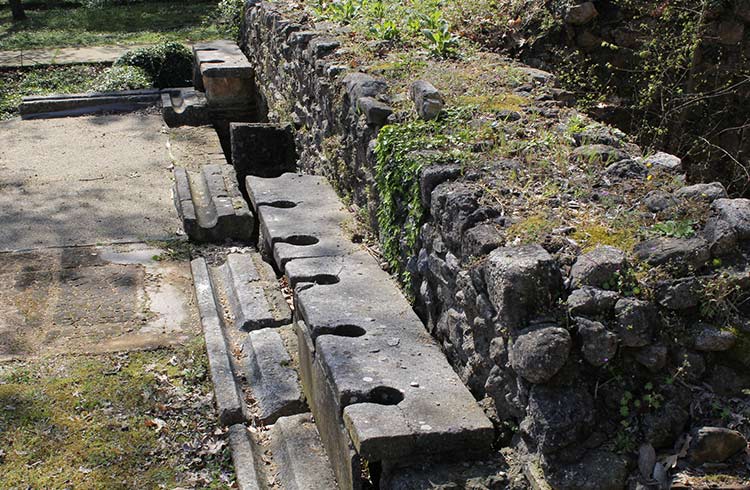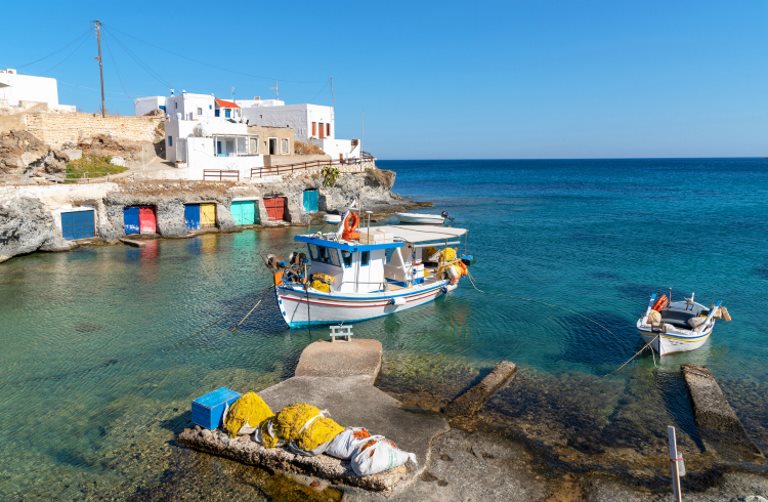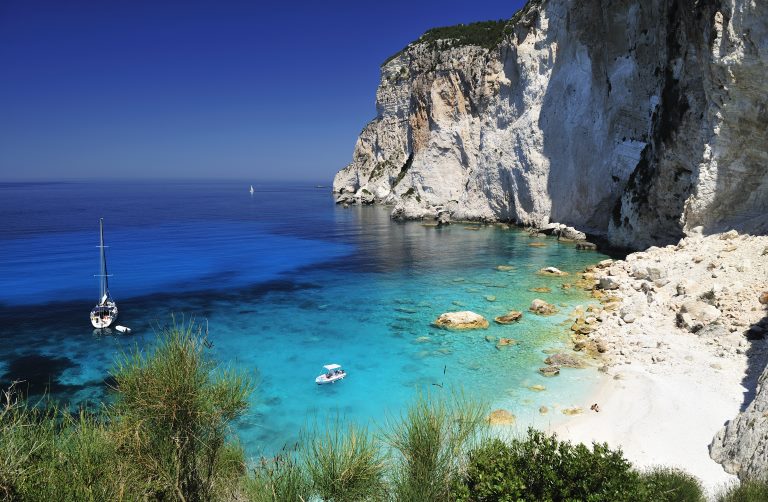Can You Flush Toilet Paper in Greece? Bathroom Hygiene 101
There’s a very important rule for using the bathroom in Greece: don’t flush your toilet paper. Find out why, and get tips on tips on bathroom etiquette, hygiene, and water sanitation in Greece.
 Photo © iStock/JudyDillon
Photo © iStock/JudyDillon
The most memorable travel adventures take many forms. Perhaps one of the key indicators that you’re out of your familiar surroundings are the cultural differences in using toilets around the world.
Adjusting to different types of conveniences can often be amusing, but tricky to get used to and sometimes a bit unsanitary. It helps to arm yourself with information in advance so you’re prepared in your moment of need.
- What's different about Greek toilets?
- What is the toilet etiquette in Greece?
- Are toilets the same everywhere in Greece?
- How common are squat toilets in Greece?
- Can I drink the tap water in Greece?
- General hygiene for Greece
What's different about Greek toilets?
Greek sewage pipes are much narrower than US or British pipes, and therefore Greek plumbing can’t handle paper or any other items as it will easily clog them. This is because the infrastructure and seweage system are much older. In fact, the first-ever known flushing toilets were at the Palace of Knossos on Crete, which was built around 1700 BC. Of course, nationally things have been updated since then, but generally, toilet pipes remain too narrow to handle any non-human waste.
What is the toilet etiquette in Greece?
The biggest thing to note is simply this: don’t flush toilet paper down the loo.
What happens if you do flush toilet paper? Due to the narrow pipes, you may end up with a clogged or overflowing toilet – unpleasant and embarrassing, to say the least.
You will find there are bins to the side of the toilet where you can dispose of your tissue instead. The bins tend to have lids and foot pedals and are emptied at least once daily, so it’s not as gruesome as it sounds. You will find there are signs in toilets everywhere to remind you of this, from hotel rooms to cafes and tourist hotspots.
Are toilets the same everywhere in Greece?
More modern hotels and developments in Greece have improved designs and sewage networks and might offer toilets with better flushing facilities, but obviously, it depends on where you go.
Greek blogger Vanessa Fou has traveled widely around her country and shares tips and advice for visitors on her website realgreekexperiences.com. She says toilets vary depending on the region and type of establishment you are visiting.
“Upmarket hotels, restaurants and airports will typically have clean and well-maintained toilets. The toilets in some local tavernas, coffee shops, bus stations and even ancient sites might not be as well-maintained,” she says. “It's always advisable to carry tissue with you, as sometimes toilet paper may have run out.”
It’s also a good tip to wrap your used toilet tissue with a few sheets of clean paper, to make just the clean paper waste visible which will be a bit less icky for you and everyone else who has to use or empty the bin.
But don’t freak out about the whole situation, it really isn’t as bad as it sounds.
How common are squat toilets in Greece?
These are another thing to keep in mind. They're not very common, but something you might encounter in remote areas. Greece’s squat toilets are exactly as you imagine: a toilet without a toilet seat and bowl, and two panels to place your feet on either side of the hole.
Fou says you might find them at places such as the UNESCO World Heritage-listed Meteora Monasteries – built in the 14th century and which teeter dramatically on the tops of cliffs and rock formations, so it’s entirely forgivable that the site’s toilets might not be the most modern.
If you do come across squat toilets, Fou’s advice for women is that the lower you squat, the better. It goes without saying that the area may not be as clean as you like and you should take extra care when wearing sandals or flip-flops.
Can I drink the tap water in Greece?
In general, Fou says hygiene standards can vary across popular tourist destinations.“You can safely drink tap water in many areas of Greece,” she says.
“This includes the big cities such as Athens and Thessaloniki, most of the mainland and certain islands. On smaller islands, such as Santorini, tap water is not always drinkable, so you should drink bottled water.
“It's always best to ask the locals at each place you visit if it's safe to drink tap water.”
Planning a trip to Greece? Find out how travel insurance can help in case of unexpected illness, lost luggage, or other travel mishaps.
General hygiene for Greece
As with travel to any country, it helps to arm yourself with information so you know what you’re dealing with before you go. Greece has high standards of food safety and hygiene, but treating everything with a common-sense approach goes a long way.
Wash your hands regularly: after using the toilet, before eating food, after visiting food markets and so on. A little bottle of hand sanitizer is also a useful and easy item to carry around.
When eating out, be careful with food that may have been washed, like salads and fruits, when you’re not certain about water safety. The same goes for ice in drinks.
If, for whatever reason, you do need healthcare in Greece, remember that British and EU nationals are entitled to free care under the European Health Insurance Card. Australia, the US and other nations need to make sure they have travel insurance in place.
Related articles
Simple and flexible travel insurance
You can buy at home or while traveling, and claim online from anywhere in the world. With 150+ adventure activities covered and 24/7 emergency assistance.
Get a quote

2 Comments
Please, don't follow the advice in this article to drink bottled water if you don't think the tap water in Greece is safe.
Bottled water creates so much unnecessary plastic waste that is destroying our oceans and the animals that live there, just to name one of the many ways that they are so bad for the planet.
Instead, buy a reusable water bottle with a good, long-lasting filter that will remove all the nasty bio-organisms that can make you sick.
I have a favourite brand, but I won't promote it here -- a Google search will return many good options.
Or, drink the excellent Greek beer or retsina!
I lived in Greece 2 years 1972-1974. I spent time in Thessaloniki . What a wonderful experience. Sounds 100% different than today.
Had to leave when war broke out between Turkey and Greece over the island of Crete. Also lived through Marshall Law due to a coup. I was just a young teen. It left a lasting impression. My favorite place in the world.